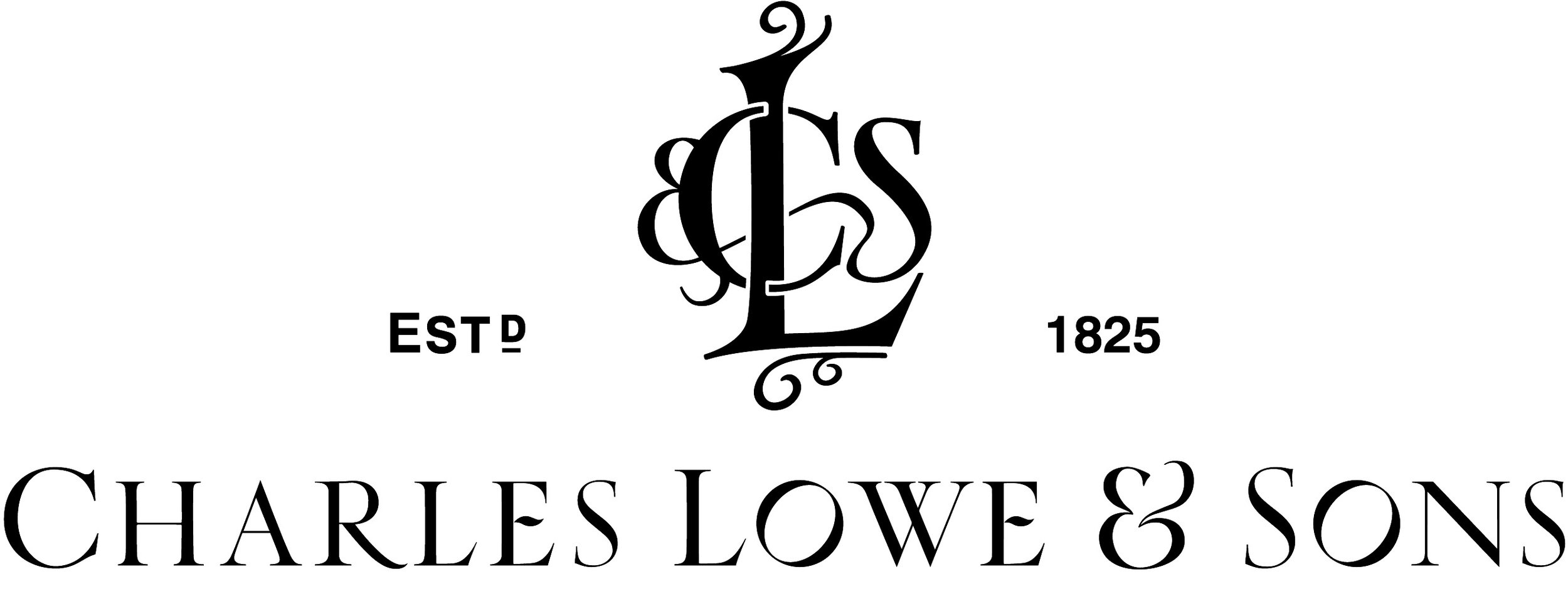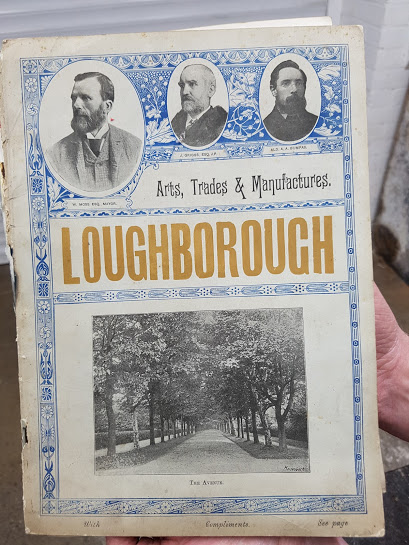Who was Charles Lowe the man behind it all?
Charles Lowe, the key figure in a business that remains robust after 200 years. What were those qualities in his character that seeded this success and longevity? What kind of man was Charles Lowe?
Charles Lowe, in his 50's
It’s clear Charles Lowe had ample amounts of ambition, drive and a love of craftsmanship. He started dealing in antiques from age 15 and by the age of 22 he was an expert in antiques and a master cabinet maker.
Charles Lowe began as an apprentice in Loughborough in 1872, working alongside local joiner, William Booth in a company that was run by William's father, John Booth. Through his enthusiasm and dedication, Charles soon became a business partner to William, going on to buy him out of the business only a few years later, in 1880.
So, what do we know about Charles Lowe, the business man?
We know he was a proactive ‘go-getter’, he threw himself into work and actively made himself available to customers. Embarking in a furniture trade would require uniqueness, together with an intricate understanding of who the customers were and knowing exactly what they wanted, just as today. It would also take reputation building, personal grit and aspirational vision.
Within a very few years of becoming sole owner of the business he had expanded it from offering only carpentry, joinery and upholstery to also include antiques, antique restoration, furniture, furniture repair, works of art, removals, warehousing, undertaking and coffin making, blinds and curtains, upholstery and bedding-manufacturing, even producing his own-branded mattresses and beds. Fitted flooring was offered; both the new floor covering Linoleum (lino), and hand-stitched together wall-to-wall 'fitted'. He began taking on contracting work, decorating and house repairs.
We know that reputation mattered to him, too. His ‘breakthrough’ commission was won in 1885, to furnish the nearby stately home of Beaumanor Hall where he had to, with a kind of military precision, organise horses, carts and manpower to go out to the Hall each morning to work on the grand refurbishment.
The commission for Beaumanor Park was Charles Lowe's big break. It put him and the company in the limelight as the best in the trade. Read more about it here.
He led this spectacular procession to the Hall each day on a tricycle and must have cut a curious figure on his journey, as a finely dressed gentleman at the head of the convoy. He took care of the details and ensured all the workers were fed well at the beginning of the day with ‘bowls of boiled eggs’ to give them the energy to do their best. After five years invested in the work, in 1890 the refurbishment was complete. The contract put Charles Lowe & Sons on the map. This was a project that would be a defining moment of his company’s legacy and he must have known it.
Working to the highest standards
It was important to him that he take care of his workforce. This was a value and measure of success for him. There is evidence he really cared about the welfare of his workers. For instance, when he had the money to invest, he set about building cottages for workers in the streets near the workshop.
Charles Lowe cared about making his workshop innovative, his workers happy and having a place that could showcase his products in the best possible light.
We also can see that he wanted the best working environment, installing new equipment and modern gas lighting to keep ahead with the benefits afforded by the Industrial Revolution. Charles was a family man and it’s arguable he regarded those who worked for him as an extension of family.
One thing we do know for sure is that Charles Lowe had a very strong work ethic. It says so from the press at the time. An article in Loughborough’s Arts, Trades and Manufacturers illustrated publication circa 1892 recounted Charles Lowe’s move to Church Gate, stating: ‘…having thrown into a large amount of energy with special experience in the most important details of the furniture trade, he has had the satisfaction of seeing the business outgrow the accommodation afforded by the old premises.’ It goes onto to describe how ‘the stock was completely overhauled to include drawing, dining and bedroom suites in various classes besides a fine selection of matching fitments and oddments’, as well as, ‘furniture to order.’
A saved copy of the local Arts, Trades and Manufacturers press in 1892, complete with glowing report on Charles Lowe & Sons.
A company of repute
The article reveals that ‘Mr Lowe is always willing to both show his stock and offer his advice to all who are interested in these matters’ and ‘this is a house of repute where both efficiency and dispatch are the order of the day.’ Such a glowing editorial demonstrates a man fully engaged with his customers and business operation. His reputation for his trade was undeniably respected.
It’s these moments we can capture from Charles Lowe’s initial dealings that we see how his template for success included having the very highest standards, taking care of workers (this continues today – no one was laid off in the 1930s great depression or the 2007 financial crisis), getting to know his customers and taking care of organisational details. It was very much a company lovingly hand crafted, much like the products it’s now renowned for.
These traits have carried through to present day and have become a formula for maintaining the company’s reputation as the country’s premier oak floor specialist.




